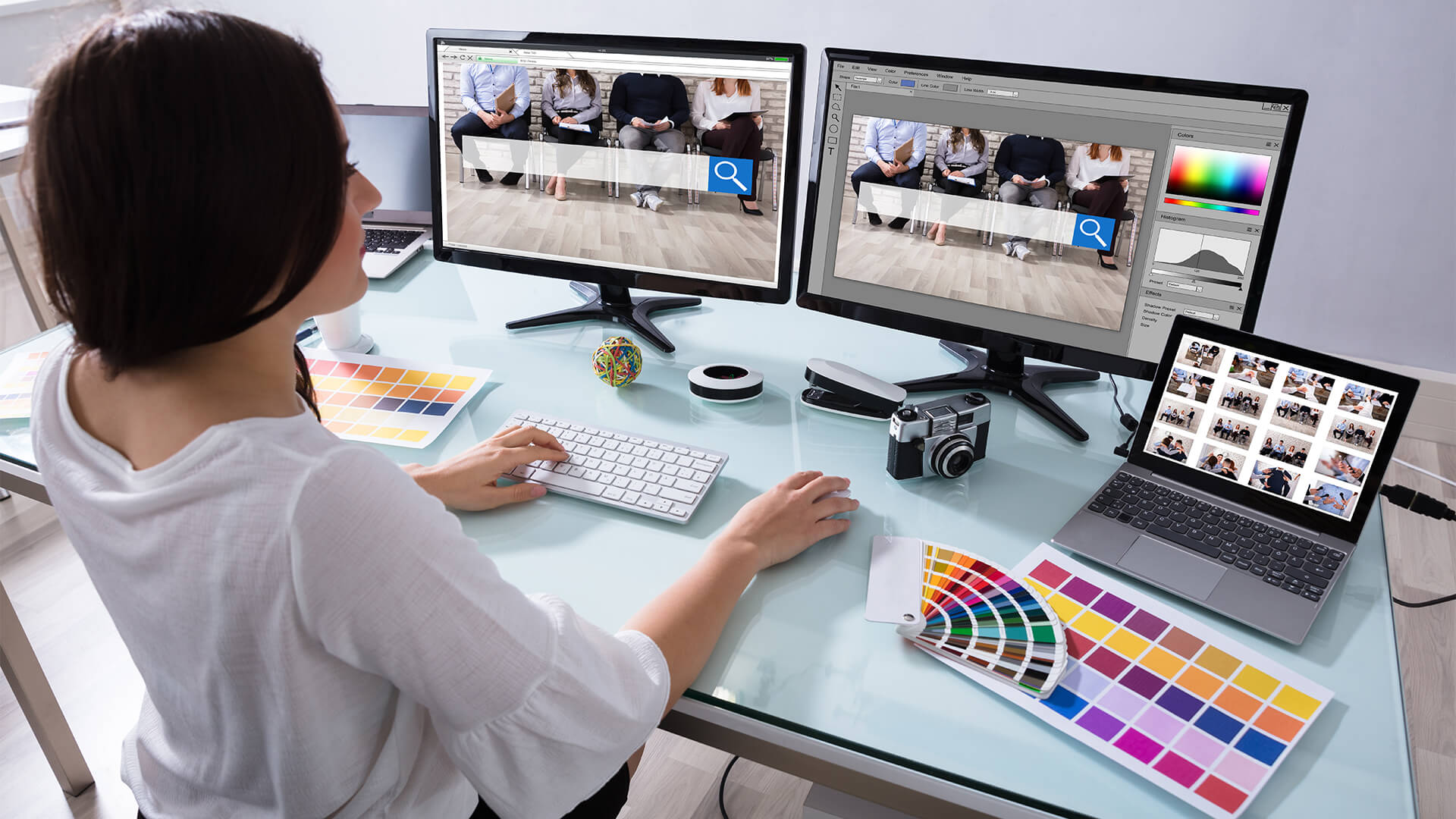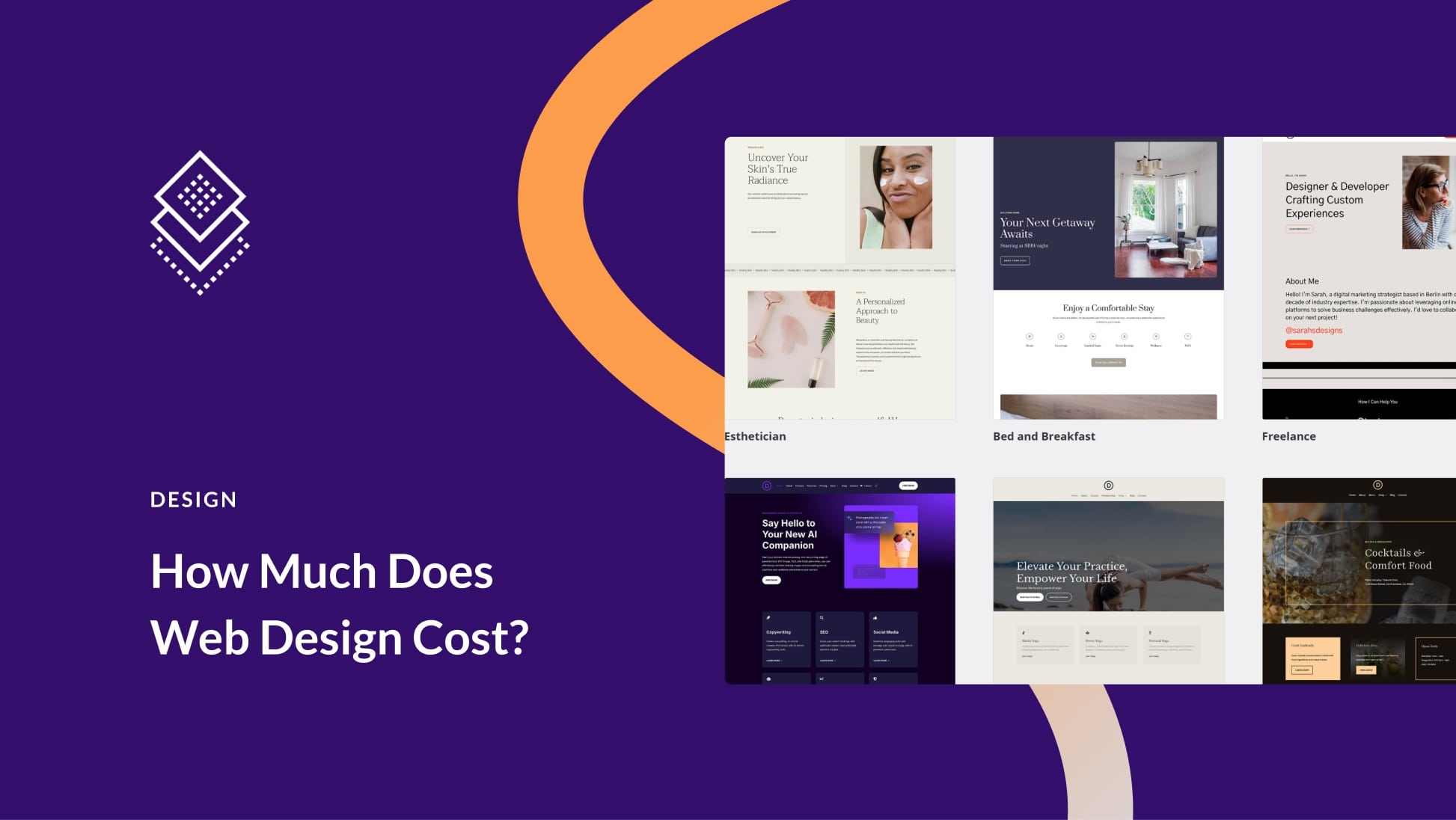Professional Aligned Position Web Design: Custom Websites Tailored to Your Business Needs
Professional Aligned Position Web Design: Custom Websites Tailored to Your Business Needs
Blog Article
The Most Effective Kinds Of Web Design to Enhance Customer Experience and Interaction
In the ever-evolving landscape of digital communication, the performance of Web layout significantly impacts customer experience and interaction. Different design techniques, such as minimal, responsive, and interactive designs, each offer distinct advantages that can accommodate diverse user demands. Recognizing which sorts of website design finest offer these purposes can be crucial for businesses intending to boost customer complete satisfaction and retention. The question stays: which layout aspects genuinely reverberate with customers and foster significant involvement? The exploration of these principles reveals essential insights that might redefine your technique to Web layout.
Minimal Website Design
As electronic landscapes come to be progressively chaotic, minimal Web design has become a powerful approach to improving individual experience. This design philosophy prioritizes simpleness, concentrating on crucial elements while eliminating unnecessary distractions. By making use of ample white area, straightforward navigating, and a restricted color scheme, minimal design cultivates clarity and guides customer attention to key material.
The core concept of minimalist Web style is to produce a seamless communication for users. By minimizing cognitive tons, customers can promptly comprehend info without feeling bewildered. This straight approach not only enhances usability yet likewise urges engagement, as visitors are more likely to check out a website that is visually attractive and simple to navigate.
In addition, minimal design usually emphasizes typography and images, making use of these components purposefully to convey messages efficiently. In essence, minimalist Web style is not simply a trend; it is a thoughtful method that recognizes the relevance of user-centered design.
Receptive Website Design
In today's varied digital setting, responsive Web layout has actually ended up being essential for producing a smooth customer experience across a wide range of gadgets. As customers gain access to internet sites on mobile phones, desktop computers, laptops, and tablet computers, the capacity of a site to adjust its format and material to various display dimensions and resolutions is crucial.
Responsive Web style uses flexible grids, pictures, and CSS media questions to guarantee that Web content exists efficiently, no matter of the gadget made use of. This method not just boosts the aesthetic charm of a website however also dramatically improves functionality. Users are most likely to engage with a website that uses a consistent experience, as it removes the frustration of needing to focus or scroll exceedingly.
Moreover, search engines, including Google, prioritize mobile-friendly websites in search positions. By adopting receptive style, services can enhance their presence and reach a wider audience. This approach also streamlines site upkeep, as a solitary variation of the site can accommodate all gadgets, minimizing the demand for numerous variations. In recap, responsive website design is a fundamental practice that boosts customer experience, interaction, and total contentment.
Interactive Web Style
Receptive Web design prepares for enhancing user experience, yet interactive website design takes this an action even more by involving customers in an extra dynamic means - Aligned Position Web Design. By including aspects such as animations, clickable models, and real-time feedback, interactive Web layout mesmerizes individuals, drawing them into helpful resources a richer browsing experience
This method not only fosters engagement however also urges individuals to check out content actively instead of passively consuming it. Techniques such as gamification, where customers make rewards for finishing tasks, can dramatically enhance the time invested in a website and improve general fulfillment. Interactive functions can streamline complicated details, making it extra pleasurable and absorbable.

Incorporating interactive style aspects can likewise cause greater conversion prices, as users are much more likely to engage with a website that proactively entails them. Aligned Position Web Design. Eventually, interactive Web design transforms user experiences into remarkable trips, making certain that site visitors return time and once more
Apartment Layout
Defined by see this here its minimalistic technique, level layout highlights simpleness and capability, stripping away unneeded aspects and concentrating on essential features. This design approach focuses on usability, ensuring that users can navigate interfaces effortlessly and performance. By utilizing a clean visual, flat layout gets rid of the mess often located in extra elaborate styles, thus enhancing individual concentrate on content and functionality.
The hallmark of level design hinges on its use of strong shades, simple typography, and geometric forms. These elements add to an aesthetically appealing interface that is both modern-day and friendly. Additionally, flat design fosters a feeling of clearness, enabling individuals to recognize important actions and details without disturbance.
Additionally, flat style is especially reliable in responsive Web style, as its simplicity converts well across numerous tools and display dimensions. By focusing on crucial functions, flat design not just satisfies individual demands yet also urges seamless interaction, making it an essential element of reliable Web style strategies.
Flexible Web Design
Flexible Web design customizes the user experience by developing numerous repaired formats customized to different screen sizes and tools. Unlike receptive design, which fluidly adjusts a single format, adaptive design uses unique designs for specific breakpoints, guaranteeing ideal presentation on different systems. This method allows developers to concentrate on the one-of-a-kind features of each tool, improving functionality by delivering exactly what customers need based upon their context.
Among the main advantages of adaptive website design is its capability to enhance lots times and efficiency. By serving customized content and images that fit the user's gadget, internet sites can reduce data use and improve loading rates. This is specifically valuable for customers with slower connections or restricted data strategies.

Additionally, flexible layout helps with an extra controlled and regular branding experience. Considering that designers create numerous designs, they can guarantee that the visual elements line up with the brand name's identification across various platforms - Aligned Position Web Design. This causes a cohesive individual experience, enhancing interaction and advertising individual retention
Verdict
In conclusion, the combination of minimal, responsive, and interactive Web style concepts substantially enhances user experience and involvement. Minimal design cultivates clarity and focus, while responsive style makes sure flexibility throughout numerous tools, advertising accessibility. Interactive design captivates users through dynamic elements, encouraging exploration and personalization. Jointly, these style comes close to add to the production of user-friendly environments that not just boost complete satisfaction but also drive higher conversion prices, emphasizing their essential relevance in modern website design techniques.

Minimalist style cultivates clarity and focus, while responsive design guarantees adaptability across various devices, promoting ease of access. Jointly, these style approaches contribute to the creation of user-friendly environments that not only improve complete satisfaction but also drive greater conversion prices, emphasizing their essential relevance in modern visit this site right here Web style techniques.
Report this page